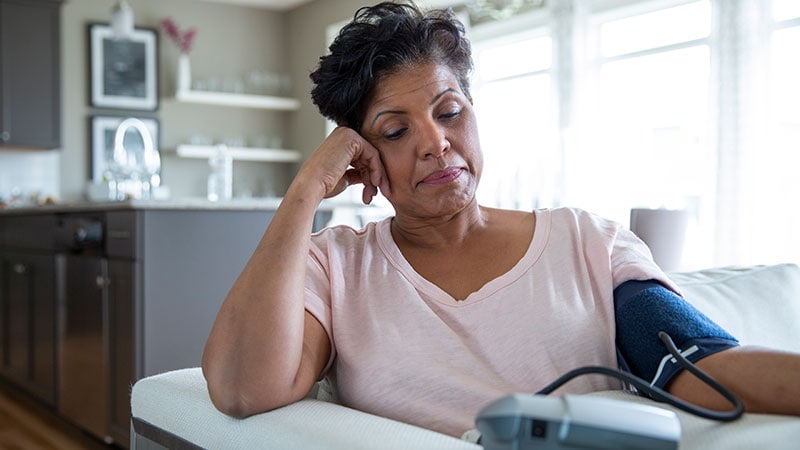Community Health Centers Improve Blood Pressure Control Rates with NHCI Initiative
Core Concepts
Community health centers have significantly improved blood pressure control rates through the NHCI initiative by implementing self-measured blood pressure monitoring and culturally sensitive interventions.
Abstract
The National Hypertensive Control Initiative (NHCI) has shown promising results in improving blood pressure control rates in community health centers. The initiative, funded by the US Department of Health and Human Services, focuses on historically under-resourced communities and aims to support healthcare teams through various interventions. Patients are trained to measure their blood pressure at home, leading to improved control rates. Different community health centers have successfully implemented self-measured blood pressure programs, resulting in notable improvements in blood pressure control. The initiative has been ongoing since 2021 and aims to inform future hypertension control efforts.
Community Program Tied to 'Dramatic' Increase in BP Control
Stats
"dramatic improvements in blood pressure control — from 44% to 70% and beyond — are possible when providing care for patients facing social determinants of health and who are disproportionately impacted by hypertension," Eduardo J. Sanchez, MD, MPH
"So far, the community health centers that participated with NHCI have achieved a 12.3% increase in blood pressure control from 2020 to 2022," Allison Smith, MPH, RN
Quotes
"When patients and care teams work in partnership, self-measured blood pressure monitoring can help inform diagnosis, treatment, and lifestyle change to improve blood pressure control," Eduardo J. Sanchez, MD, MPH
"The early program success is very encouraging, and the effort must continue," Wanpen Vongpatanasin, MD
Key Insights Distilled From
by Megan Brooks at www.medscape.com 09-14-2023
https://www.medscape.com/viewarticle/996448
Deeper Inquiries
How can community health centers sustain the improvements in blood pressure control rates beyond the NHCI initiative?
Community health centers can sustain the improvements in blood pressure control rates beyond the NHCI initiative by implementing long-term strategies. This includes continuing to prioritize regular blood pressure management training for healthcare teams, ensuring ongoing technical assistance and resources for proper blood pressure measurement techniques, medication adherence, and healthy lifestyle services. Additionally, fostering partnerships with patients and empowering them to take charge of their health through self-measured blood pressure monitoring can be crucial. Community health centers should also focus on culturally sensitive interventions tailored to the needs of populations disproportionately affected by hypertension, such as Black, Hispanic, and American Indian/Alaskan Native communities. By maintaining these practices, community health centers can sustain and even further improve blood pressure control rates in the long run.
What are the potential drawbacks or limitations of relying on self-measured blood pressure monitoring for long-term management?
While self-measured blood pressure monitoring can be a valuable tool for long-term management of hypertension, there are potential drawbacks and limitations to consider. One limitation is the need for proper training and education for patients to ensure accurate measurement techniques. Without adequate guidance, there is a risk of incorrect readings leading to mismanagement of hypertension. Additionally, some patients may struggle with consistent monitoring or may not adhere to the recommended monitoring schedule, which can impact the effectiveness of self-measured blood pressure monitoring. Another drawback is the lack of immediate professional oversight, which could result in delayed intervention in case of significant blood pressure fluctuations or emergencies. Moreover, certain populations, such as elderly individuals or those with limited dexterity, may face challenges in effectively using self-measured blood pressure devices. Addressing these limitations through comprehensive patient education, support systems, and periodic validation of self-measured readings is essential for the successful long-term management of hypertension.
How can the involvement of community health workers enhance the effectiveness of blood pressure control programs?
The involvement of community health workers can significantly enhance the effectiveness of blood pressure control programs by bridging the gap between healthcare providers and patients, especially in underserved communities. Community health workers, who often share similar backgrounds and experiences with the populations they serve, can establish trust, provide culturally relevant health education, and promote adherence to treatment plans. They play a vital role in advocating for patients, facilitating communication with healthcare teams, and addressing social determinants of health that may impact blood pressure control. Community health workers can also support patients in adopting healthy lifestyle changes, improving medication adherence, and ensuring regular monitoring of blood pressure. By serving as liaisons between patients and healthcare providers, community health workers contribute to personalized care, continuity of support, and increased patient engagement, ultimately leading to better outcomes in blood pressure management programs.
0
